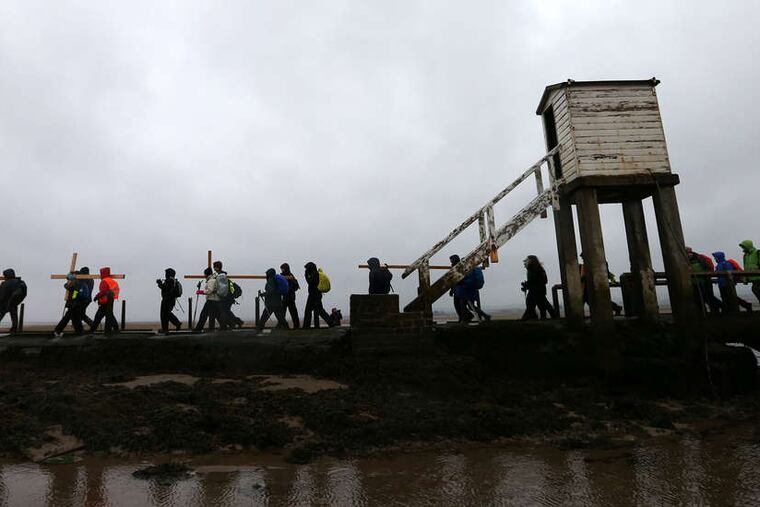Winding down a Holy Week
Around the world, various traditions are embraced that culminate with Easter Sunday.

This weekend and in the coming days, Christians around the world are celebrating Easter and their belief in the resurrection of Jesus. In the Philippines, intense Catholic passion plays enacted there yield photo essays year after year.
Though authorities in Manila have banned foreigners from volunteering for the bloody tradition this year, local customs elsewhere have become tourist attractions.
Below is a closer look at five European countries and how their Christian citizens are spending Easter.
In the Greek city of Corfu, pots are ceremonially destroyed.
Easter plays an important role in predominantly Orthodox Greece. The festivities that take place in mid-April are carefully scheduled - but one local custom might make foreign observers especially curious: According to the governmental website Visit Greece, "people hurl clay pots from windows and balconies which crash noisily on the streets below," in the city of Corfu.
It is not entirely clear what the origins of this custom are: Some argue that the tradition is copied from the Venetians who threw out old items at the beginning of a new year. Others think that the custom has biblical origins.
Some Portuguese collect food and money for those in need.
Like in Spain, Easter celebrations in Portugal are dominated by century-old rules. Many locals dress up to re-create scenes related to the story of the resurrection of Jesus. Members of the Misericordia brotherhood organize processions in villages and towns to collect donations which are then offered to widowers and widows.
In Poland, Easter eggs are turned into artworks.
Painting Easter eggs can be fun for kids, but in Poland it is art. Following traditional rules and depictions, Polish artists are able to transform thousands of eggs into beautiful oval paintings. Some of the artists have worked with eggs for more than 10 years and are able to copy miniature versions of religious paintings onto the surfaces of eggs. According to broadcaster Euronews, knives are used to scratch the patterns.
Besides artworks, the Polish celebrate Easter with another, yet more controversial tradition. According to the BBC, it is custom in this eastern European country that women and girls are soaked with water by boys and men. While this tradition was originally used by men as a rather odd way to flirt at Easter, it has since become a national water pistol fight.
The BBC describes women as hiding beneath rain coats and behind umbrellas on Easter Monday - a scenario which raises doubts whether this custom should ever be imported into the United States.
Norwegians read crime novels at Easter weekend.
This tradition has absolutely nothing to do with the religious origins of Easter - but Norwegians are obsessed with it, as the website the Nordic Page described in 2011: "Each year, nearly every TV and radio channel produce a crime series for Easter. The milk company prints crime stories on their cartons. In order to cash in on this national pastime, publishers churn out series of books known as 'Easter-Thrillers' or Påskekrim."
It is believed that the custom goes back to 1923, when a publisher advertised a new book on the front page of a Norwegian newspaper in a way that made many believe that a train had been looted the night before. Although the ad - presented like a news story - turned out to be a fake, the book it advertised became a huge success.
In most of Germany, it's illegal to dance at Easter.
If you want to spend Easter in Germany and love to dance, you might want to think twice. On Good Friday, dancing and loud music are banned nearly all over Germany. In the state of Baden-Wuerttemberg the ban continues until Saturday.
The law has existed for about 60 years and has become increasingly controversial: Germany is home to millions of Muslim, atheist and Jewish citizens who are also affected by the ban, which was established out of respect for the country's Christian majority.